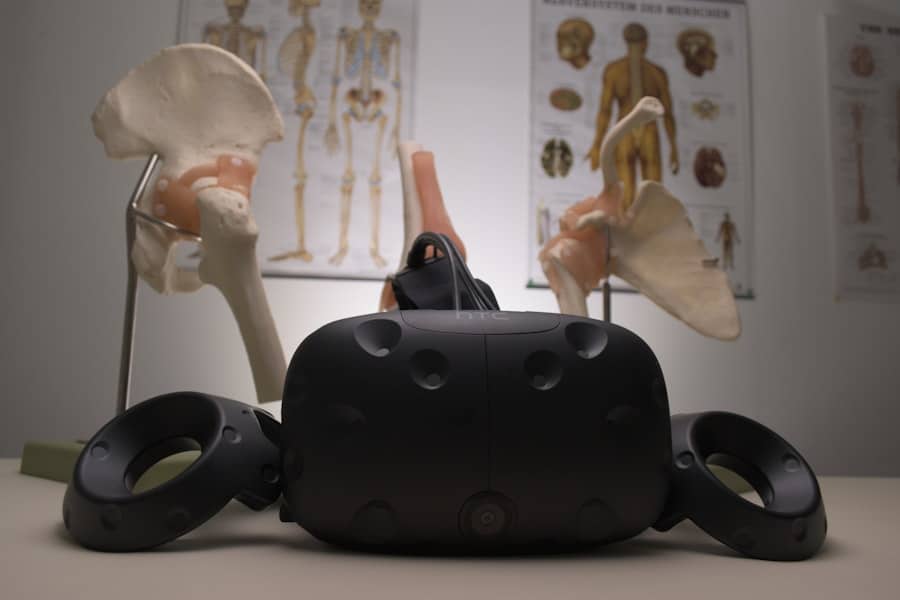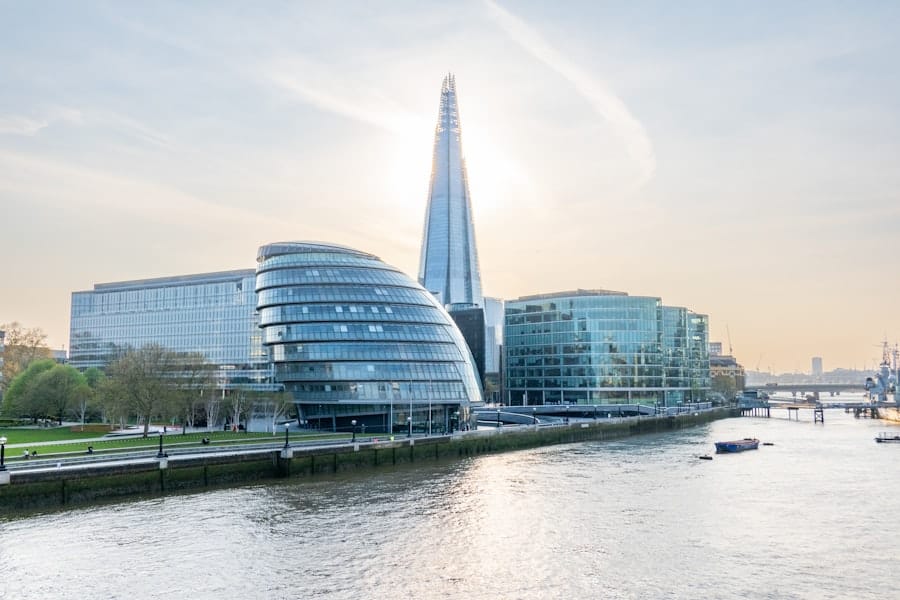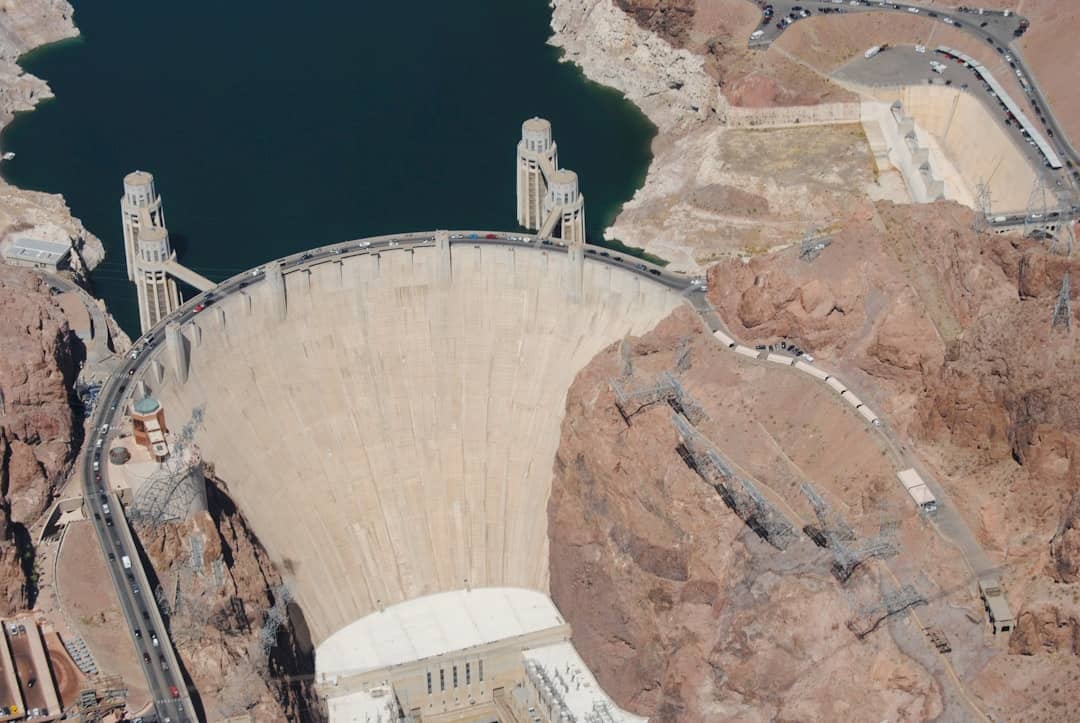The concept of the metaverse has rapidly evolved from a niche idea in science fiction to a burgeoning reality that is reshaping various sectors, including tourism. As technology advances, virtual environments are becoming increasingly immersive, allowing users to explore digital landscapes that replicate or even enhance real-world locations. This rise of metaverse landmarks signifies a transformative shift in how we perceive travel and exploration.
No longer confined to physical boundaries, the metaverse offers a platform where individuals can traverse iconic sites, engage with diverse cultures, and experience adventures that may be logistically or financially prohibitive in the physical world. The allure of visiting a digital version of the Eiffel Tower or the Great Wall of China from the comfort of one’s home is a compelling proposition that is drawing attention from both tech enthusiasts and casual users alike. Moreover, the rise of metaverse landmarks is not merely about replicating existing sites; it also opens the door to entirely new experiences that transcend reality.
Virtual tourism allows for the creation of fantastical environments that can blend elements of imagination with cultural significance. For instance, users might find themselves walking through a digital recreation of ancient Rome, complete with interactive elements that provide historical context and storytelling. This innovative approach to tourism not only caters to the wanderlust of individuals but also serves educational purposes, making history and culture accessible in ways that traditional travel cannot.
As we look to the future, it is clear that metaverse landmarks will play a pivotal role in redefining our understanding of travel and exploration.
Key Takeaways
- Metaverse landmarks are the future of virtual tourism, offering a new way to explore destinations from anywhere.
- Virtual tourists can expect to experience digital destinations that are immersive, interactive, and constantly evolving.
- VR technology is shaping the future of tourism by providing a more accessible and customizable travel experience.
- The potential metaverse landmarks of the future could range from iconic real-world locations to entirely new, imaginative destinations.
- Virtual tourism is the next frontier in travel and exploration, offering endless possibilities for adventure and discovery.
Exploring Digital Destinations: What to Expect from Metaverse Landmarks
As we delve deeper into the realm of metaverse landmarks, it becomes evident that these digital destinations are designed to offer more than just visual experiences; they are crafted to engage users on multiple sensory levels. Expect to encounter environments that utilize advanced technologies such as augmented reality (AR) and virtual reality (VR) to create immersive experiences that feel almost tangible. Users can interact with their surroundings, whether it’s touching a virtual sculpture or participating in a guided tour led by an AI-generated avatar.
This level of interactivity not only enhances user engagement but also fosters a sense of presence that is often missing in traditional online experiences. The potential for gamification within these environments further enriches the experience, allowing users to embark on quests or challenges that encourage exploration and learning. In addition to interactivity, metaverse landmarks are likely to incorporate social elements that allow users to connect with others from around the globe.
Imagine attending a virtual concert at a digital replica of Madison Square Garden, where fans can gather, chat, and share their experiences in real-time. This social aspect transforms solitary exploration into a communal event, bridging geographical divides and fostering connections among individuals who share similar interests. Furthermore, as technology continues to advance, we can anticipate even more sophisticated features such as personalized experiences tailored to individual preferences and interests.
Whether it’s customizing your virtual avatar or selecting specific activities within a landmark, the future of digital destinations promises to be as diverse and dynamic as the travelers who explore them.
The Intersection of Technology and Travel: How VR is Shaping the Future of Tourism

The intersection of technology and travel has always been a dynamic space, but the advent of virtual reality (VR) is revolutionizing this relationship in unprecedented ways. VR technology allows users to immerse themselves in lifelike simulations of various environments, effectively transporting them to places they may never have the opportunity to visit physically. This capability is particularly beneficial for those with mobility challenges or financial constraints that limit their travel options.
By providing access to virtual experiences that replicate real-world locations, VR is democratizing travel and making it more inclusive than ever before. As a result, individuals can explore distant lands, historical sites, and natural wonders without the barriers typically associated with traditional tourism. Moreover, VR is not just enhancing accessibility; it is also transforming how we plan and experience travel.
Travel agencies and tour operators are beginning to incorporate VR into their offerings, allowing potential travelers to preview destinations before making commitments. Imagine being able to take a virtual stroll through the streets of Tokyo or experience a sunset over Santorini while still at home. This innovative approach not only aids in decision-making but also enriches the overall travel experience by setting realistic expectations.
Additionally, as VR technology continues to evolve, we can expect even more sophisticated applications that integrate artificial intelligence and machine learning to create personalized travel itineraries based on individual preferences and past behaviors. The future of tourism is undoubtedly intertwined with technological advancements that enhance our ability to explore the world.
From Eiffel Tower to Mars: Imagining the Potential Metaverse Landmarks of the Future
The potential for metaverse landmarks extends far beyond our current understanding of iconic sites; it invites us to imagine a future where both real and fantastical locations coexist in a digital landscape. While landmarks like the Eiffel Tower or the Great Wall of China will undoubtedly remain popular attractions, the metaverse opens up an entirely new realm for creativity and exploration. Envision virtual destinations on Mars, where users can traverse the red planet’s surface, conduct simulated scientific experiments, or even participate in interplanetary missions alongside avatars representing astronauts from various countries.
Such experiences could ignite interest in space exploration and education while providing an exhilarating adventure for users. Furthermore, the possibilities for creating entirely new landmarks are virtually limitless. Designers and developers can craft environments inspired by literature, mythology, or even dreams—places that exist solely within the confines of our imagination.
Picture walking through a digital version of Atlantis or exploring a futuristic cityscape reminiscent of science fiction novels. These imaginative spaces can serve as platforms for storytelling, art exhibitions, or interactive games that engage users in unique ways. As we continue to push the boundaries of what is possible within the metaverse, it becomes clear that future landmarks will not only reflect our cultural heritage but also our aspirations for creativity and innovation.
Virtual Tourism: The Next Frontier in Travel and Exploration
Virtual tourism represents an exciting frontier in travel and exploration, offering opportunities that were once thought impossible. As more people become aware of the benefits of virtual experiences, this new form of tourism is gaining traction among various demographics—from tech-savvy millennials seeking unique adventures to older adults looking for accessible travel options. The appeal lies in its ability to provide enriching experiences without the logistical challenges associated with traditional travel.
Users can explore diverse cultures, attend events, or participate in guided tours without worrying about flight schedules, accommodation costs, or physical limitations. Moreover, virtual tourism has significant implications for sustainability in travel. As concerns about carbon footprints and environmental impact grow, many travelers are seeking alternatives that allow them to satisfy their wanderlust without contributing to overtourism or ecological degradation.
Virtual tourism offers a solution by enabling individuals to experience global destinations while minimizing their environmental impact. This shift towards more sustainable practices aligns with broader trends in consumer behavior as travelers increasingly prioritize eco-friendly options when planning their trips. As virtual tourism continues to evolve, it will likely play an essential role in shaping a more responsible approach to exploration.
The Promise of Future Metaverse Sites: Where Will Virtual Tourists Go Next?

As we look ahead to the future of metaverse sites, it is intriguing to consider where virtual tourists will venture next. The possibilities are vast and varied; from historical recreations that allow users to witness pivotal moments in time to entirely new worlds crafted from imagination, each destination holds unique potential for exploration and engagement. One promising avenue is the development of educational sites that focus on environmental conservation and awareness.
Imagine virtual tours through endangered ecosystems or interactive experiences that highlight climate change’s impact on various regions around the globe. Such initiatives could foster greater understanding and appreciation for our planet while inspiring action among users. Additionally, as technology continues to advance, we may see an increase in collaborative projects where users contribute to building and shaping virtual landmarks themselves.
This participatory approach could lead to dynamic environments that evolve based on user input and creativity. For instance, communities could come together to design digital representations of their hometowns or cultural heritage sites, fostering a sense of ownership and pride among participants. The promise of future metaverse sites lies not only in their ability to transport us across time and space but also in their potential to connect us through shared experiences and collective creativity.
Navigating VR travel has become increasingly accessible as technology advances and platforms evolve. Users no longer need specialized equipment or extensive technical knowledge to embark on virtual adventures; many experiences can now be accessed through standard devices such as smartphones or computers equipped with basic VR capabilities. Various platforms offer curated collections of metaverse landmarks that cater to different interests—whether you’re drawn to art galleries, historical sites, or natural wonders—making it easier than ever for users to find destinations that resonate with them personally.
Moreover, as social media continues to play a significant role in shaping travel trends, sharing experiences within the metaverse has become an integral part of navigating this new frontier. Users can document their virtual journeys through photos or videos and share them with friends or followers online, creating a sense of community around shared interests in exploration and discovery. Additionally, many platforms now incorporate social features that allow users to connect with others during their travels—whether through guided tours led by knowledgeable hosts or collaborative activities within digital environments—further enhancing the overall experience.
As we embrace this new era of travel, navigating VR landscapes promises not only adventure but also connection.
The Evolution of Tourism: How Virtual Destinations are Changing the Way We Explore the World
The evolution of tourism is marked by significant shifts in how we explore our world—shifts driven by technological advancements and changing consumer preferences. Virtual destinations are at the forefront of this transformation, challenging traditional notions of travel while offering innovative alternatives that cater to diverse needs and desires. As more individuals embrace virtual tourism as a legitimate form of exploration, we witness a redefinition of what it means to be a traveler in today’s interconnected society.
No longer limited by geographical constraints or financial barriers, people can engage with cultures and experiences previously deemed inaccessible. Furthermore, this evolution extends beyond individual experiences; it has implications for entire industries reliant on tourism revenue. As destinations adapt to changing consumer behaviors—such as incorporating virtual offerings alongside physical attractions—they can create hybrid models that enhance visitor engagement while promoting sustainability.
By embracing technology as an integral part of their strategies, tourism stakeholders can ensure they remain relevant in an increasingly digital world where virtual experiences coexist alongside traditional travel options. Ultimately, the rise of virtual destinations signifies not just a shift in how we explore but also an opportunity for growth and innovation within the broader landscape of tourism itself.
In the exploration of future virtual tourist destinations within the metaverse, it’s crucial to consider how individuals will create and perceive their virtual identities in these spaces. A related article that delves into this aspect is “Entering the Metaverse: Creating Your Virtual Identity.” This piece provides insightful perspectives on the intricacies of virtual identity formation and its implications for interaction within virtual environments. Understanding these dynamics is essential for anyone interested in the development of metaverse ‘landmarks’ and how they will be experienced by users. You can read more about this topic by visiting Entering the Metaverse: Creating Your Virtual Identity.
FAQs
What is the Metaverse?
The Metaverse is a collective virtual shared space, created by the convergence of virtually enhanced physical reality and physically persistent virtual reality.
What are Metaverse ‘Landmarks’?
Metaverse ‘Landmarks’ are virtual locations within the Metaverse that are designed to mimic real-world tourist destinations, offering virtual experiences and attractions.
How are Metaverse ‘Landmarks’ created?
Metaverse ‘Landmarks’ are created using virtual reality technology, 3D modeling, and digital design tools to replicate real-world locations and create immersive virtual experiences.
What are the benefits of exploring Metaverse ‘Landmarks’?
Exploring Metaverse ‘Landmarks’ allows users to experience virtual tourism, visit iconic destinations from around the world, and engage in interactive virtual experiences without leaving their homes.
What are some examples of Metaverse ‘Landmarks’?
Examples of Metaverse ‘Landmarks’ may include virtual versions of famous landmarks such as the Eiffel Tower, the Great Wall of China, the Taj Mahal, and other popular tourist destinations.
How can users access Metaverse ‘Landmarks’?
Users can access Metaverse ‘Landmarks’ through virtual reality platforms, social VR applications, and other immersive digital experiences that offer virtual tourism and exploration opportunities.











Leave a Reply